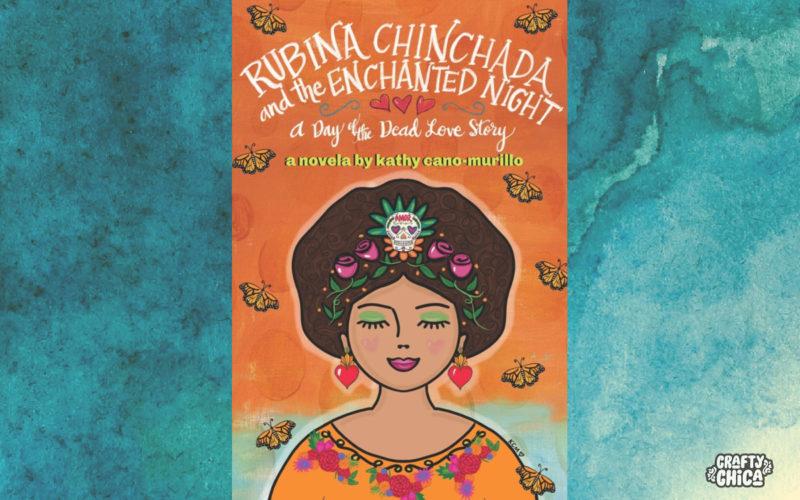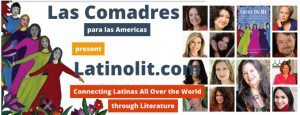One of my writing mentors and coaches has been the wonderful Marcela Landres! Here is her latest newsletter where she shares information about online writing classes.
Good stuff – I thought I’d share it with you! Don’t forget to sign up for her newsletter and buy her ebook!
OK…on to the newsletter…
From Marcela Landres:
Classes won’t confer or expand talent. No matter how many singing lessons
she takes, Jennifer Lopez will never sound like Christina Aguilera. What
classes can do, however, is train you to make the most of the talent with
which you were born.
Writers who don’t avail themselves of writing classes are like marathoners
who run with one leg tied up—they’ve put themselves at a distinct disadvantage.
Thanks to the Internet, everyone has access to writing classes. Not all of
them are created equal; the only online writing classes I recommend are those
offered by UCLA Extension. They are pricier than other classes, but you get
what you pay for. You are better off taking one class at UCLA Extension than
several classes somewhere else. To learn more, read this month’s Q&A with
UCLA Extension instructor Liz Gonzalez.
Liz Gonzalez teaches creative writing courses online through the UCLA
Extension Writers’ Program. She teaches “Essential Beginnings: An
Introductory Creative Writing Workshop” and “Writer as Witness to Life.” For
more information about Liz, please visit http://www.lizgonzalez.com/
For more information about the UCLA Extension Writers’ Program, please
visit http://www2.uclaextension.edu/writers/
Q: When is a writer ready for classes (e.g. when they have an idea, or have
written some pages, or have a complete manuscript, etc.)?
A: Since there is a wide range of courses available to any level of writer, I
think that a person is ready for classes when he or she feels comfortable
to share his or her work with others and wants to improve his or her craft
in a class environment. For example, one of the courses I teach through
the Writers’ Program is “Essential Beginnings: An Introductory Creative
Writing Workshop.” My students in this class vary. Some have been writing
in the closet or have wanted to try their hand at writing, some want a
brush up on the basics, and some fall somewhere between. All want to ease
into creative writing and are ready to work with a group.
Q: What are the advantages of online classes vs. brick-and-mortar classes?
A: As one who has taken and taught on-land and online courses, one big
advantage of the online courses is convenience. Students can check in
anytime of the day or night, in their pajamas or frumpies, after the children
have gone to bed, during a break at work, or before starting the day. I also
like having time to reread the lectures and work in the workshop and digest
them before responding. For a beginner, I think the anonymity is a safe way
to get started. I also like that I get to work with people from around the
country world. I have students stationed in the Middle East, traveling or
living in Asia, Europe, and South Africa. The diversity of voices and
perspectives from around the world make the classes and work more
engaging than in a local classroom, even one in a city as diverse as Los
Angeles.
Q: Which attributes and/or credentials should writers seek in a teacher?
A: This is a difficult question to answer. Students could take a course with
their favorite writer and find that the writer isn’t an engaged teacher. Word
of mouth isn’t always available. And having a degree or a great deal of
publications doesn’t necessarily make a good instructor. I suggest that
writers read the instructor’s bio to see if there is a pull. One can always
get a feel for an instructor during the first week, reading the posts,
lectures, and assignments, and if the class doesn’t seem right for the
student, s/he can drop in time to get a refund.
Q: Could you offer three tips on how writers can make the most of their
experience in class?
A: * Be open. If you come in with a specific set of expectations, beyond
what the course promises, you might miss what that person has to teach you.
* Print the lectures and handouts. Read them closely, and reread them.
* Make time in your schedule for the class and meet deadlines.
Q: On the other hand, what are the top three mistakes writers should
absolutely avoid?
A: My response to this question applies most to new writers.
* Dismissing the value of rewriting. I am a big advocate of “rewriting is
writing.”
* Not taking the time to hone one’s craft before sending work out for
publication. Many writers, including myself, regret having “shoddy”
work published. You can never take it back!
* Not reading. Somewhere someone said, “Beware of the writer who has
written more than he or she has read.” It’s too true.
Q: How has your own writing influenced your teaching? And how has
your teaching influenced your writing?
A: In addition to “Essential Beginnings,” I also teach a course I designed,
“Writer as Witness to Life,” which addresses what I learned on my own
about “writing creatively about events and experiences that are personal
and important without getting too self-absorbed, sentimental, preachy, or
narrow.” All the lessons I use for both classes are craft lessons I wish had
been taught to me when I started writing. They also give beginning writers
a stronger foundation in the craft basics.
Teaching creative writing keeps my craft chops sharp. It’s a constant
reminder to practice a writing process and develop layer by layer. My
students’ creative approaches to the writing assignments teach me too.
As poet and activist Raul Salinas would tell his workshop groups, I come to
learn as well.
3. Resources
***************************************************************
HOW EDITORS THINK
“I read How Editors Think in one sitting and was engaged from beginning to
end. It is well written, highly informative, and humorous—I found myself
laughing out-loud in a few spots! Thanks for sharing the secrets of the trade.”
—Mayra Lazara Dole, author of Down to the Bone
Inspired by my experience as a former Simon & Schuster editor, How Editors
Think: The Real Reason They Rejected You reveals what it really takes to get
published. For more information, visit:
http://www.marcelalandres.com/E-book.html
***************************************************************
BUSHWICK MEDIA SEEKS STORIES
Deadline: June 21
Bushwick Media seeks short stories for Missing Pages, an anthology, from
gifted writers in between definable categories–published though perhaps
not in The New Yorker, authors not quite living off their royalties, and
natural storytellers who haven’t yet pursued publication. For more information,
visit http://tinyurl.com/3vzmje3
*****
WRITER AS WITNESS TO LIFE ONLINE CLASS
Dates: July 6-September 7
Liz Gonzalez teaches how to enhance your observation abilities and
strengthen your description skills. This UCLA Extension online course is
appropriate for both fiction and creative nonfiction writers. For more
information, visit http://www2.uclaextension.edu/writers/
*****
THRILLER WRITING CONFERENCE
Dates: July 6-9
ThrillerFest is a four-day celebration of thriller books, the authors who write
them, and the fans who read them. Includes CraftFest, intensive writing classes,
and AgentFest, a gathering of agents looking for the Next Big Thing. For more
information, visit http://www.thrillerfest.com/
*****
YADDO RESIDENCY
Application Deadline: August 1
Residencies as short as two weeks are offered to poets, fiction writers,
and creative nonfiction writers. Artists from all nations and backgrounds
are encouraged to apply. A limited amount of financial aid for travel is
available. For more information, visit http://www.yaddo.org/
*****
TRAVEL/FOOD/PHOTOGRAPHY CONFERENCE
Dates: August 11-14
Book Passage’s conference is geared towards travel writers & photographers
and food & cookbook writers. The faculty includes publishers, magazine editors,
photographers, travel essayists, food writers, restauranteurs, guidebook
writers, etc. For more information, visit
http://bookpassage.com/travel-food-photography-conference
*****
EMERGING VOICES FELLOWSHIPS
Deadline: August 15
For poets, fiction writers, and creative nonfiction writers from
underserved communities in the early stages of their careers. There
are no age restrictions. For more information, visit
http://www.penusa.org/tags/emerging-voices
*****
RAGDALE ARTIST’S RETREAT
Deadline: September 15
Ragdale offers residencies from two weeks to two months to emerging and
established artists, writers, and composers from all over the world. Past
residents include Jacquelyn Mitchard, Audrey Niffenegger, and Alice Sebold.
For more information, visit http://www.ragdale.org/
*****
SEEKING TEXT-WORTHY POEMS
Cellpoems, a poetry journal distributed via text message, seeks poems that
are strange, profound, and weird, condensed into 140 characters or less.
For more information, visit http://cellpoems.org/
*****
$25,000 BOOK AWARD SERIES
Narrative Magazine seeks previously unpublished story collections, novels,
memoirs, essay collections, general nonfiction, and graphic stories. There is no
deadline. For more information, visit http://www.narrativemagazine.com/award
*****
PENGUIN SEEKS PRODUCTION COORDINATOR/SUPERVISOR
Our production department has a terrific opportunity for someone to handle
the production of Penguin reprints. Applicants must have one year of book
production experience for coordinator level, or two years for supervisor
level. For more information, visit
http://us.penguingroup.com/static/pages/aboutus/jobopportunities.html
*****
KNOWLEDGE IS POWER ONLY WHEN SHARED
Please forward Latinidad® widely.
***************************************************************
For more resources, visit http://www.marcelalandres.com/resources.html
***************************************************************
Felicidades,
Kathy 🙂
Check out my new novel! MISS SCARLET’S SCHOOL OF PATTERNLESS SEWING







This is the type of news that we all can use! Writing is a tough business and tougher if you are self-published! Thanks for the share 🙂
xoxox
B